Water, Sanitation & Waste
ETH for Development (ETH4D) has been supporting the following projects in the field of Water, Sanitation and Waste.
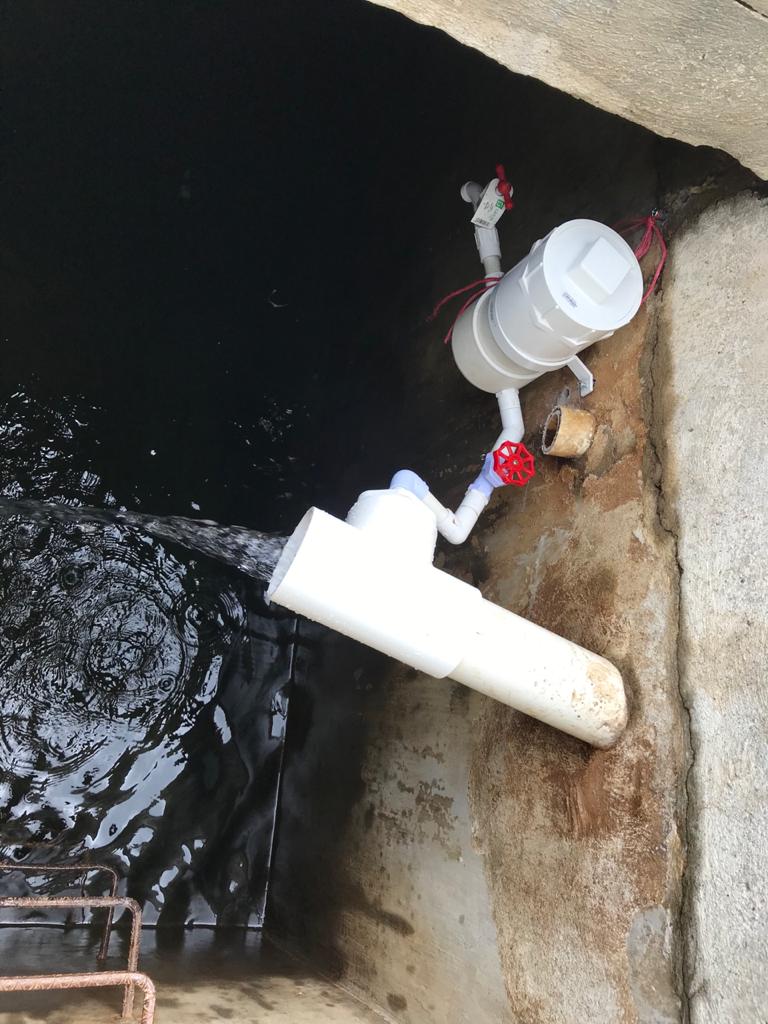
Modular Humanitarian Sanitation Solution
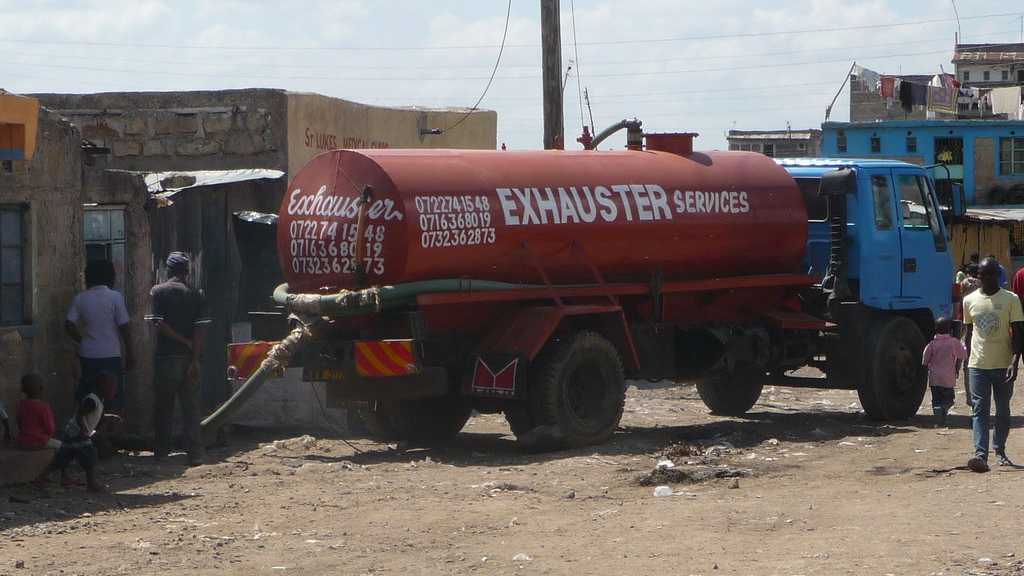
Sistema.bio is a large-scale social enterprise that has installed 20,000+ animal waste biodigesters globally. The anaerobic biodigester developed by Sistema.bio transforms human waste to energy. To date, Sistema.bio has installed 120 units globally at households, schools, and for decentralized faecal waste treatment plants. The modular design makes it uniquely suited to humanitarian environments with a 20-year lifetime and a fast, masonry-independent installation. A limiting factor to the mass rollout of the biodigester is the need for secondary effluent treatment (pathogen removal) after the biodigester has produced gas. For this project, a prototype effluent pasteuriser (powered by biogas) has been developed to enable implementation and optimisation. The project proposes to operate a pilot biodigester + pasteurisation unit at a treatment plant in Kisumu, Kenya. The installation will include a 20m3 biodigester and a pasteurisation unit. Thermal calculations show that biogas derived should be sufficient to power a pasteuriser to treat waste.
The ultimate goal of the work is to bring a completely modular human waste treatment system to market for use in humanitarian settings. Provisional interviews with key stakeholders (incl. Red Cross, PeaceWinds Japan) have suggested that there is significant demand in humanitarian settings where safe management of human waste consistently a problematic issue that leads to ill health and loss of human life.
Focus Country: Kenya
Contact: Prof. Elizabeth Tilley
Parnters: external page OPERO Services, external page Sistema.bio
ETH4D Grant: ETH4D Research Challenges Grant
Real-time Monitoring for Faecal Sludge Dewatering in Lebanon

The sanitation needs of one-third of the world’s population are met by non-sewered sanitation. With an increasing awareness of the need for non-sewered sanitation, technologies for treatment of faecal sludge that accumulates in onsite is becoming important worldwide. One of the most important treatment steps is dewatering, as faecal sludge contains more than 95% liquid. However, established technologies for solid-liquid separation of faecal sludge have a large footprint and are time-consuming processes.The MEWS (Management of Excreta, Wastewater and Sludge) group at Sandec, Eawag (www.sandec.ch/mews) has conducted research on chemically-enhanced dewatering (addition of conditioners) and has shown that this is a promising option to optimize dewatering. However, it cannot yet be scaled up, as robust process control is lacking.
To fill this gap, this project tests for the prediction and control of conditioner dosage in the laboratory at Eawag. It focuses on total suspened solids (TSS) sensors, as TSS is difficult to measure in continuous operation and it has a great influence on conditioner dosing. Prior to being able to implement this solution, rigorous field-testing is needed. MEWS is collaborating with CubeX, a Lebanese start-up who are developing a mobile faecal sludge dewatering truck. The CubeX prototype is still missing a reliable and robust process control system to be able to operate the dewatering truck as a financially viable solution. In the scope of this project, the team will validate the use of TSS sensors for the optimal dosage of conditioners in order to scale up this solution for faecal sludge management in general, which is the missing step for a project on full-scale automated system for dewatering using conditioners.
Focus Country: Lebanon
Contact: external page Dr. Linda Strande
Partner: external page CubeX
ETH4D Grant: ETH4D Pilot Grant
Chlorination Intervention for Rural Water Supplies
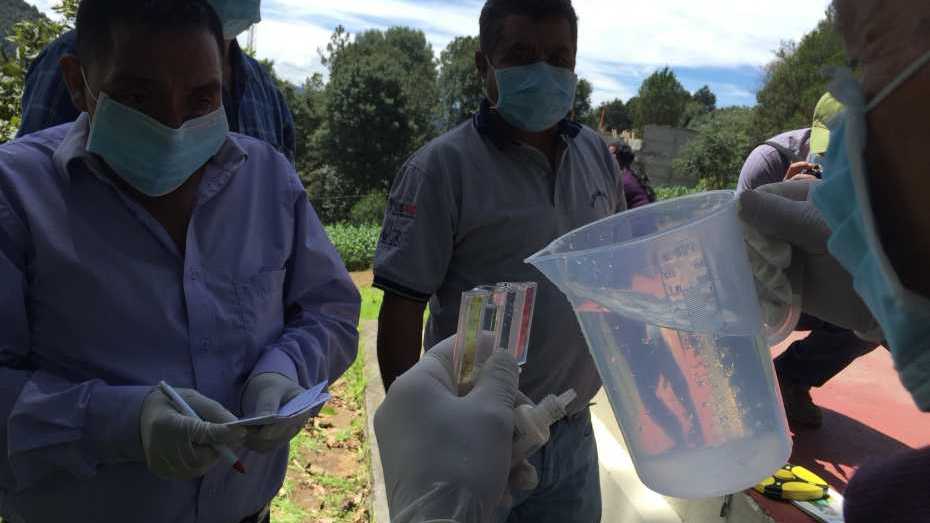
Delivering safe drinking water remains a global challenge, particularly in remote rural areas. Existing water treatment methods often fail due to their reliance on sustained behaviour change, difficulties with repairing or replacing parts, and a lack of local material supply chains. Low-cost in-line chlorination technologies have great potential for achieving sustained treatment of small rural drinking water systems. However, little evidence exists on the effectiveness of these novel chlorination technologies installed at the system level, particularly in a rural context.
The project aims to systematically evaluate the applicability of a locally constructed in-line chlorination device designed by Helvetas Swiss Intercooperation in the Lake Atitlán region of Guatemala. The project uses a mixed-methods approach, consisting of a controlled before-after community-level assessment and an interrupted time series analysis in four communities. The study evaluates the technical and cost performance of the chlorination device, water users’ acceptance and satisfaction with their water service, system management practices, and child health status.
Focus country: Guatemala
Contact: external page Dr. Sara Marks
Partner: external page Helvetas Guatemala
ETH4D Grant: ETH4D Research Challenges Grant
Online-monitoring of Recycled Water Quality
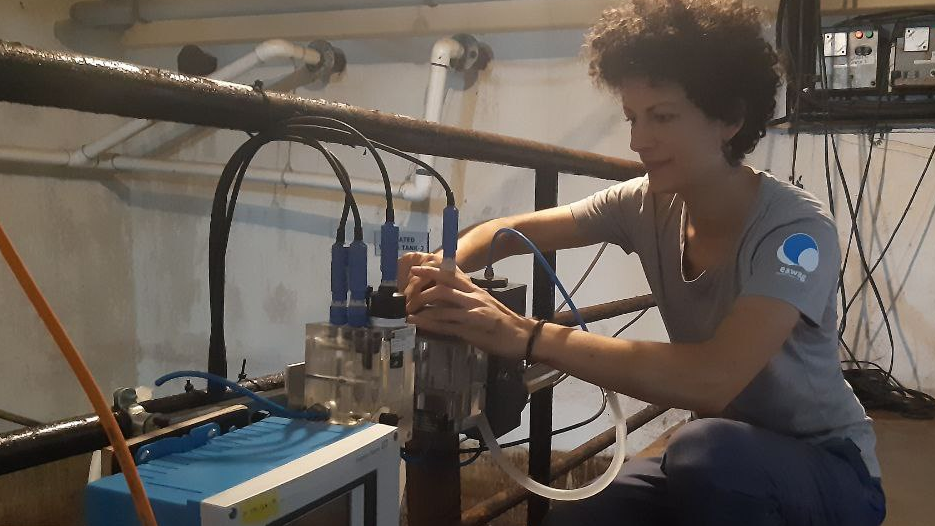
Communities across the world face water supply challenges due to increasing demand,
drought, groundwater depletion and contamination, and aging infrastructure. In many regions, treated wastewater water could be used as an alternative water source, as it provides reliable quantities of water, all while relieving the stress on freshwater resources. The challenge for such systems is that safety, especially in terms of microbial water quality, must be ensured at all times.
In India, the reuse of treated wastewater has been getting increased attention due to rising pressures on water supplies, especially in water-scarce cities. In the city of Bangalore, the local government has issued a zero-discharge policy that requires large apartment building to treat and reuse their wastewater on-site, for example for toilet flushing. However, there is limited information on short-term variations of the microbial water quality from such on-site water reuse systems, as water samples are usually sent to specialised laboratories only once a month.
This project evaluates the microbial water quality from on-site water reuse systems in Bangalore and investigate strategies for real-time monitoring of the treated water. We will implement a range of commercially available and inexpensive online sensors in two existing water reuse systems and take daily samples of the microbial water quality. This data will then be used to train machine learning algorithms to predict the microbial water quality using the sensor measurements. Ultimately, such monitoring algorithms could be used to send out an alarm when water quality targets are not met, and thus prevent residents from getting sick from using insufficiently treated water.
The knowledge generated in this research will be relevant for several audiences:
1. academics who are increasingly interested in field-based evidence of on-site water reuse systems
2. local regulators who will be provided information on how selected systems perform in the field and which parameters are crucial for performance assessment
3. building owners and operators of water reuse systems, for which online monitoring can be linked to an increase in actual performance as well as an increase in trust by the customers.
Focus Country: India
Contact: Prof. Eberhard Morgenroth
Partners: external page ATREE
ETH4D Grant: ETH4D Research Challenges Grant
Informed Sanitation and System Choices for CWIS
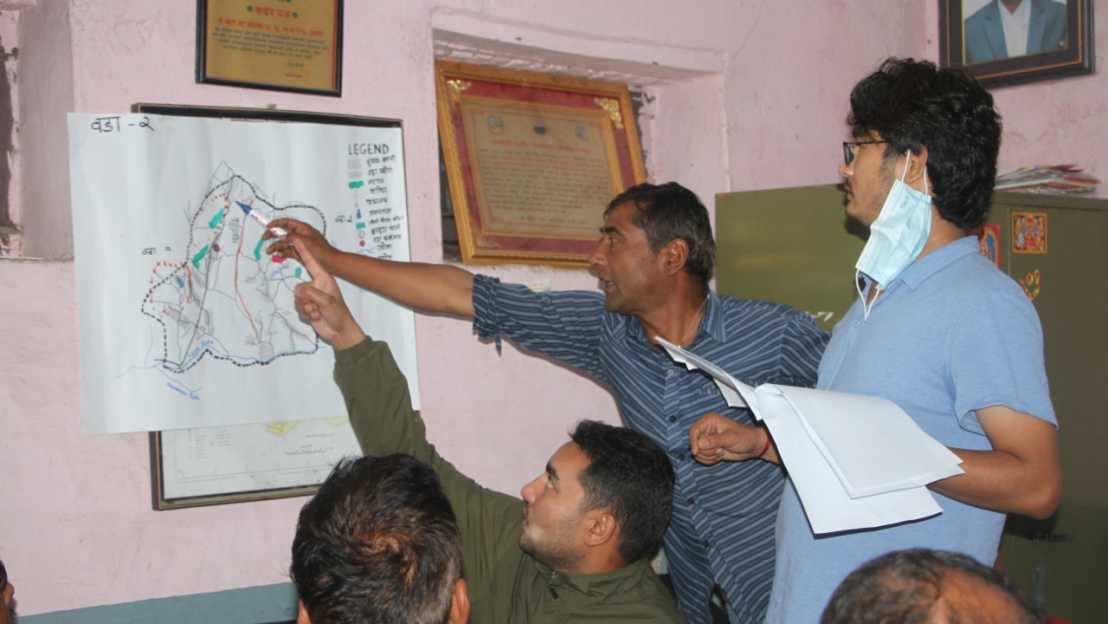
Today, half of the global population lack access to safe sanitation globally. Most of them in developing urban areas where conventional centralized sewer systems are not viable. Improved planning practices are urgently needed. Citywide Inclusive Sanitation is an framework for providing inclusive access to adequate and sustainable sanitation services, including the safe, effective, and sustainable management of all human waste along the whole sanitation service chain.
To develop a strategic CWIS plan requires a strategic multi-stakeholder planning process. One challenge remaining is the identification of sanitation technologies along the sanitation value chain combined with viable financing and operation models. Identifying a locally appropriate and sustainable combination of sanitation technologies and system configuration is a complex multi-criteria decision-making problem involving a growing number of technical solutions, multiple criteria, local conditions, and trade-offs. To enable practitioners to make a systematic and informed choice Eawag, with its partner in Nepal and Ethiopia, has developed SaniChoice, an open-source online tool for informed sanitation technology and system choice as an input into the decision process. In this project, we will test SaniChoice together with a locally developed draft guideline for CWIs planning. With this, we hope to learn more on how best to apply SaniChoice as well as to improve the existing guide with specific information for each step of its implementation.
The project is a strategic opportunity to contribute to the development of best practices in CWIS planning in Nepal. This contribution is made through the development of knowledge on how to implement CWIS planning including SaniChoice. This knowledge is directly transferrable to many other municipalities in the country and the region.
Focus Countries: Nepal and India
Contact: external page Dorothee Spuhler
Project Partners: external page Changunarayan Municipality, external page 500B, external page CWIS-A
ETH4D Grant: ETH4D Pilot Grant
EOOS Toilet with Indigenous Materials
This project, in partnership with the Nova Institute (South Africa), addresses sanitation and food security challenges in rural Southern Africa by co-developing a low-cost, non-sewered toilet using indigenous concrete with local communities. The goal is to test sustainable, locally sourced concrete mixtures that make the open-source EOOS urine-diverting toilet (UDT) more affordable for low-income households. By separating urine—a nutrient-rich waste—it can be repurposed as fertilizer for homestead agriculture, supporting both sanitation and food production. The project includes community engagement, construction of pilot toilets, and lab testing to assess the viability of indigenous materials, contributing to a larger initiative from the South African Water Research Commission on urine reuse for agriculture. The pilot project is led by Prof. Elizabeth Tilley (ETH Department of Mechanical and Process Engineering), and takes place between September 2024 and September 2025.
Focus Country: South Africa
Contact: Prof. Elizabeth Tilley
Partners: external page Nova Institute
ETH4D Grant: ETH4D Pilot Grant
Integrated Approach to Water, Sanitation and Solid Waste
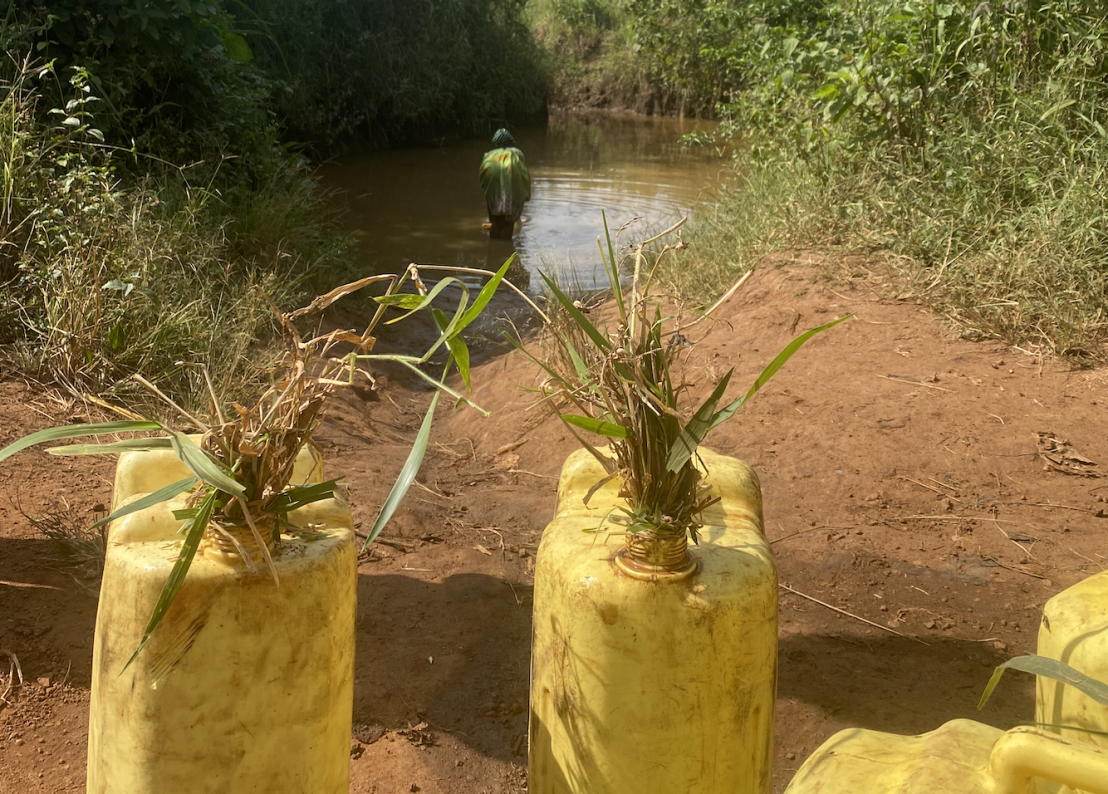
Water, sanitation, and solid waste are closely linked, yet an integrated approach to their service provision is lacking. Rapid urbanization and limited resources in many small towns in Sub-Saharan Africa has resulted in poor access to these services. An integrated approach could prove to be effective in improving access to these basic services contributing to the progress in SDGs 1 (no poverty), 6 (clean water and sanitation) and 11 (sustainable cities).
Previous research from the WABES project in two towns in Uganda, revealed major gaps and interlinkages between the water, sanitation, and solid waste services. The need for innovative, cost-effective solutions tailored to local contexts is necessary. This research project aims to support the integrated planning process by identifying and cataloguing technical, operational, and social innovations, followed by a stakeholder-led selection process for implementing them. Selected innovations will then be tested at a household or system scale to assess their integrated benefits.
Focus Country: Uganda
Contacts: external page Dr. Abishek S Narayan, external page Dr. Christoph Lüthi
Partners: external page Makerere University, external page Ministry of Water and Environment, Town Councils of Kakooge and Wobulenzi
ETH4D Grant: ETH4D Research Challenges Grant